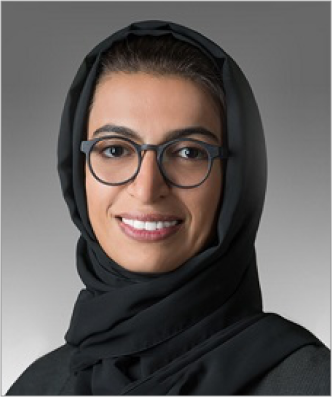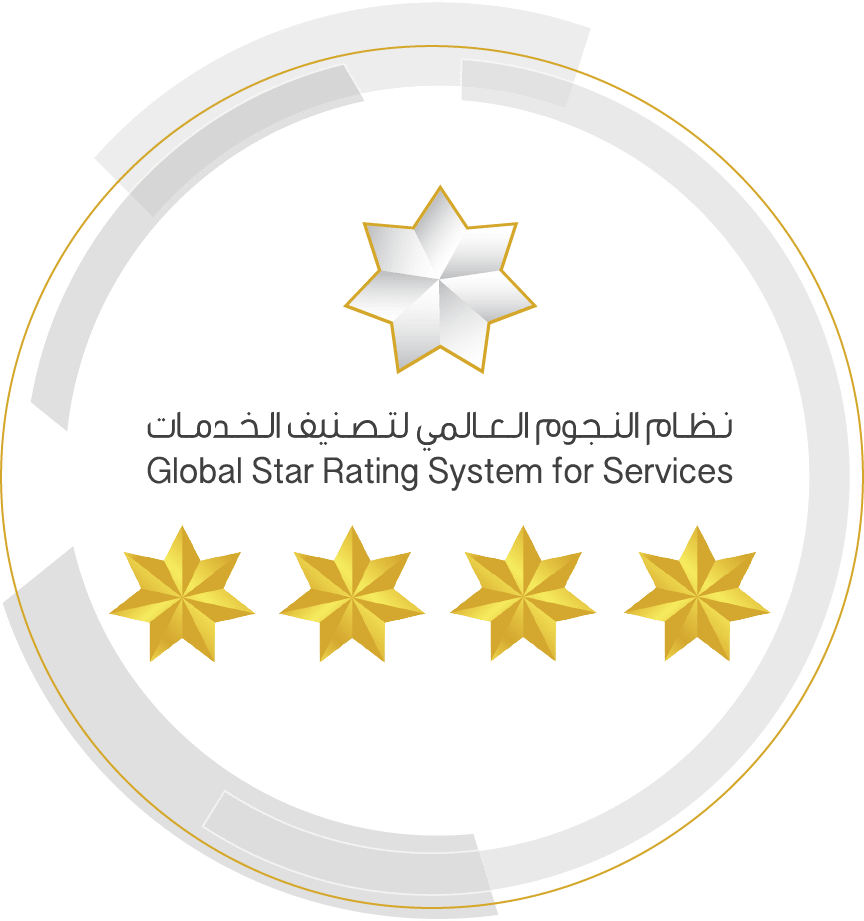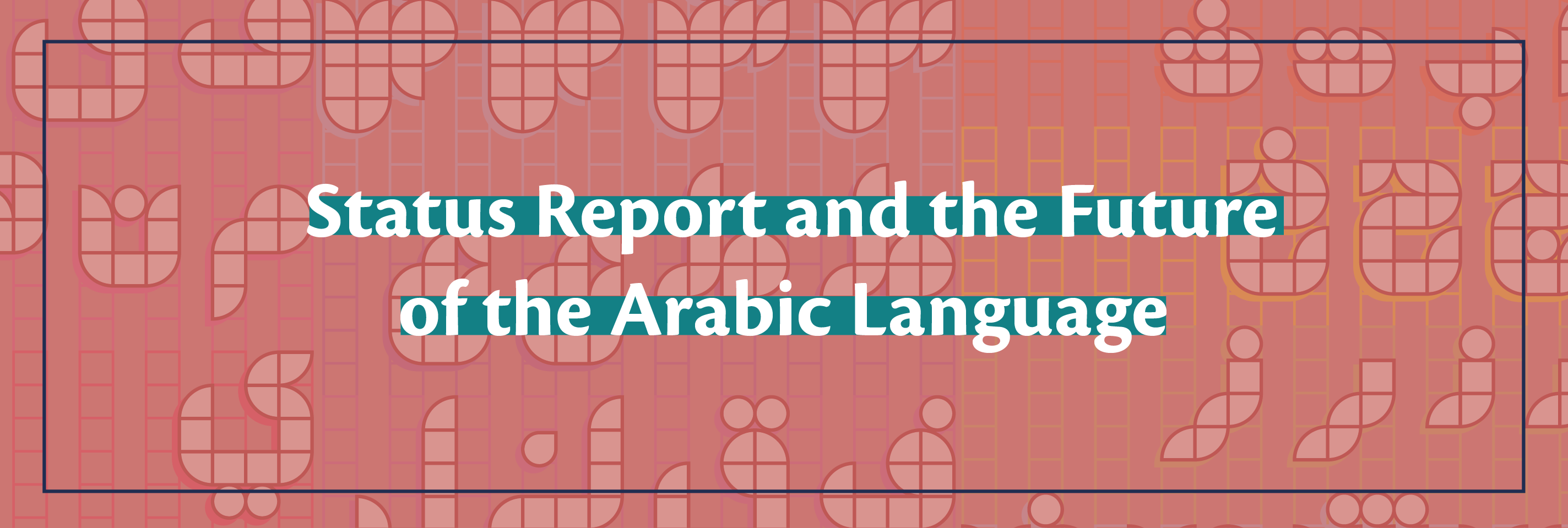
Her Excellency Noura bint Mohammed Al Kaabi
UAE Minister of Culture and Youth
On behalf of the Ministry of Culture in the United Arab Emirates and the Advisory Council on the Arabic Language, it is my pleasure to present to you the first edition of the Report on the Status and Future of the Arabic Language.
We live at a time when information and data reign supreme, when scientific approaches help us to face challenges. Thus, we asked: how can we apply this kind of approach to the Arabic language, in order to understand the challenges it faces in the twenty-first century, and the new opportunities opening up to its speakers at home and in new worlds? Most public discussions about Arabic consist of personal anecdotes based on the experiences of the speakers, whether negative or positive; they do not necessarily reflect a shared view of Arabic or a proper analysis of its current state. From this reality, the idea was born to draft a report on the status of Arabic and its future, a research-based undertaking that we hope will form a foundational reference for all those working with the language, including governments and educational institutions, as well as technical and commercial sectors. This idea became reality under the direction of His Highness, Sheikh Mohammed bin Rashid Al Maktoum, Vice President and Prime Minister of the United Arab Emirates, and ruler of the Emirate of Dubai, to begin working on this report, and it was announced on the International Arabic Language Day on December 18, 2018.
The first chapter of this report represents its starting point: it reviews legislation and laws that govern the usage of Arabic in all governmental and social realms, paving the way for the following chapters, each of which offers an in-depth look at the usage of Arabic in other spheres.
Arabic is, first and foremost, a tool of communication for its speakers as they manage the affairs of their daily lives. They use it to interact with their families and friends and to read and relay the news. Hence, we have chosen topics that explore the current status of Arabic in the media, in the public sphere, and in publishing.
Because language is passed down from one generation to the next, and because the greatest challenge for any language is for new generations to adopt it, master it, and use it, this report takes a detailed look at the attitudes and beliefs towards Arabic held by Arab university students, at scientific research and publishing, and at educational approaches for teaching the language across a number of Arabic-speaking countries.
Similarly, the report devotes a chapter to a discussion of Arabic in technology, in particular, the interaction of computers and algorithms with natural language. This kind of communication between people and computers has become an attribute of our life today, and the engine of business, communication, culture, and education, as well as all other sectors.
Finally, the report dedicates two chapters to the relationship between Arabic and the rest of the world, the first focusing on Arabic translation initiatives and the challenges they face, and the second on Arabic learning initiatives in new worlds, beyond its traditional Arab and Islamic domains.
This report represents the fruit of the labor of 23 researchers from the Emirates and other Arab countries, with contributions from 50 experts in domains related to the Arabic language employed in major governmental, academic, and technological institutions and companies across the UAE, Saudia Arabia, Oman, Lebanon, South Korea, Australia, China, Brazil, Germany, the United States, and other countries.
The Report on the Status and Future of the Arabic Language is the product of an exceptional task force that put in extraordinary intellectual effort, time, and passion for our native tongue, with an inspiring commitment towards its future. I would like to thank the members of the research team that produced this report, led by Professor Mahmoud Al Batal, as well as the contributing partners who helped enrich the report with their opinion pieces and case studies, as well as the task force at the Ministry of Culture. I would also like to thank my colleagues on the Advisory Council for the Arabic Language, whose discussions and comments added depth to the report, and who pushed it towards the issues most important for our language. Finally, I would like to pay tribute to the support of the Education and Human Resources Council headed by His Highness Sheikh Abdullah bin Zayed, and their counsel that helped enrich the report.
This report represents the commitment of the UAE to our cultural identity, and to its role as an effective contributor to the cultural identity of our region. It is my pleasure to direct our sincerest expressions of gratitude and appreciation to our wise leadership, which continues to promote interest in the Arabic language, and this is manifestly apparent in all the initiatives that have been launched in the UAE, among them the Arabic Language Center in Abu Dhabi and the Arabic Language Academy in Sharjah. I also cherish the regional and global initiatives that have been launched, such as the King Salman Center for the Arabic Language in the Kingdom of Saudi Arabia and the UNESCO programs related to the Arabic language. In conclusion, this report would not have seen the light of day without the support of His Highness Sheikh Mohammed bin Rashid Al Maktoum, Vice President and Prime Minister of the United Arab Emirates, and ruler of Dubai, who made the decision to undertake this project and provided it with his support and guidance.
The Report on the Status and Future of the Arabic Language can be a starting point for a research-based approach to issues surrounding Arabic. In the end, each one of us, from within his or her own field, is responsible for strengthening our relationship with the language, developing teaching methods that facilitate learning it, and promoting its use. The Arabic language, embodied in its many forms and registers, from the official standard to the local varieties, is a living language that develops and changes continuously in the same manner as any other language. While globalization and technology create challenges for the language, they also usher in unprecedented opportunities for it as well.
With this, I issue an open invitation for all those working with the Arabic language to cooperate with us on this project in the hope that the report may become a unifying platform to continue the discussion, enrich the debate, showcase success stories, and share lessons learned from the experiences of various nations, institutions, and individuals.
In addition to her ministerial responsibilities, Al Kaabi is President of Zayed University and Chair of the National Commission for Education, Culture and Science. Previously, she has held the post of Minister of Culture and Knowledge Development, Minister of State for Federal National Council Affairs and Chairperson of Abu Dhabi Media and twofour54.
Al Kaabi holds a Bachelor’s degree in Management Information Systems from UAE University, 2001 and completed an Executive Leadership Programme at the London Business School in 2011.





